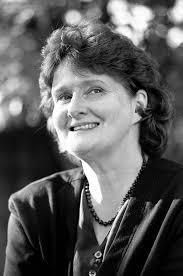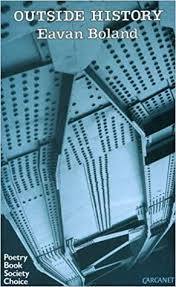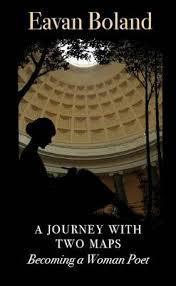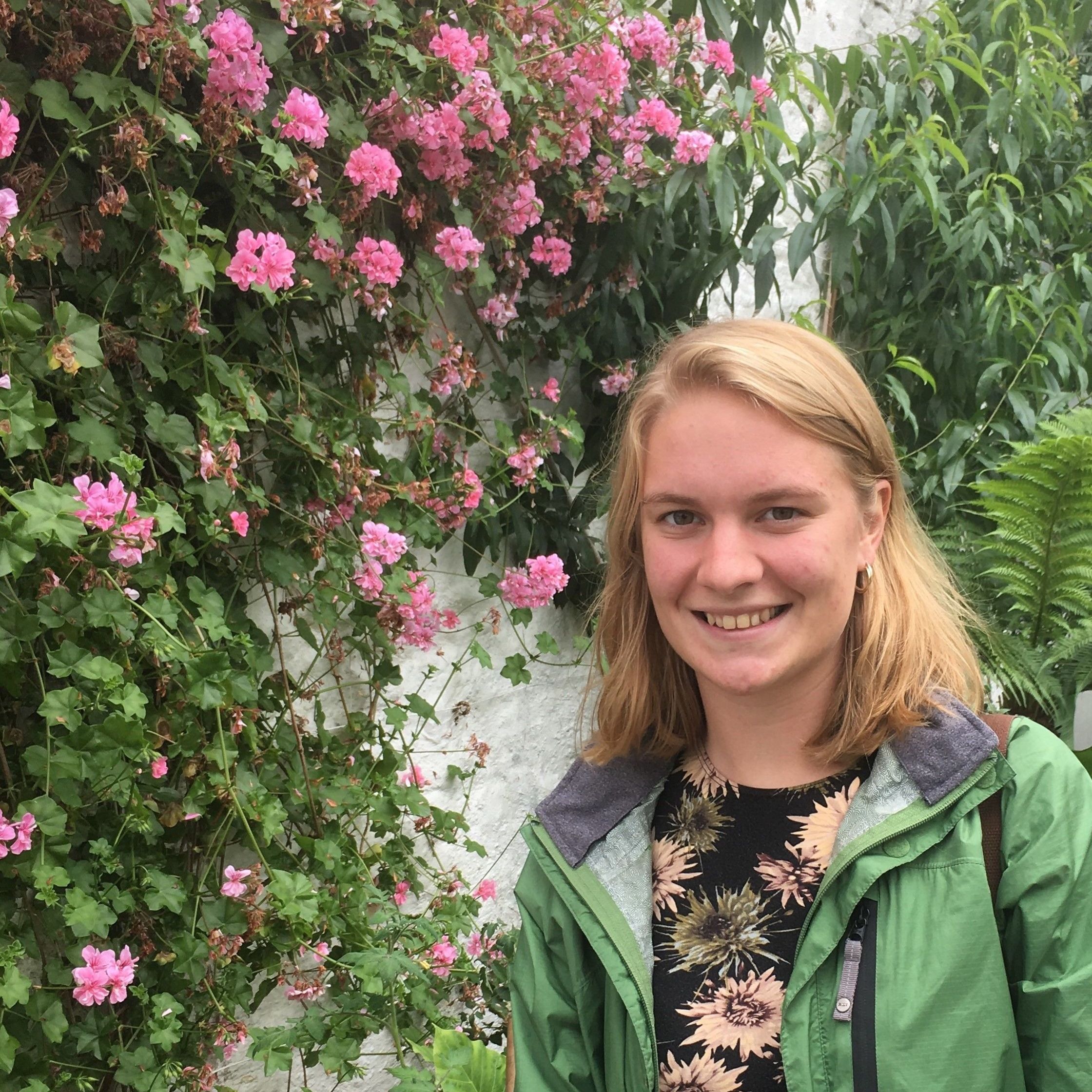Reflections on the Poetry of Eavan Boland

Eavan Boland, one of Ireland's foremost poets, died in April of this year. Born in 1944, Boland found literary success with her poetry collections "In Her Own Image"(1980), "Nightfeed" (1982), "Outside History" (1990) and "Domestic Violence" (2007). Her poetry foregrounded women's experiences and interrogated the relationship between the poet and nation. Her work is read by secondary school students across Ireland, and her poem 'Quarantine' was shortlisted for RTÉ's selection of Ireland’s favourite poems of the last 100 years.
Boland joined Stanford University as professor of English in 1996. Shortly afterwards, she visited the University of Notre Dame to contribute to the 1997 Sophomore Literary Festival—a weeklong gathering of noted authors from around the world. That year, Boland's "Outside History" was part of Notre Dame's core syllabus. [Read more about this event in Heather Schomann's write up in the Scholastic (pp. 10-11)]
Boland's last collection of poetry, The Historians, will be published in 2020 by W.W. Norton.
Catherine Wilsdon, Ph.D., Keough Naughton Institute Programme Manager and Liaison, Ireland
Marie Doyle, ND '21, A Reflection on the Poetry of Eavan Boland
During their visit to Ireland five years ago, my grandparents mailed me a postcard of famous Irish writers, and twelve little black-and-white portraits of Ireland’s literary greats hung on my bedroom wall for years. When I finally made it to Ireland myself, for an Irish language immersion course in rural Western Ireland, I was introduced to Ireland’s treasure trove of Irish language writers, and I studied the nation’s complex interplay between language, literature, and politics. This past semester, I again returned to Western Ireland, attending the National University of Ireland-Galway, where I encountered Ireland’s ancient literature: including bardic poetry, law tracts, and epic sagas. By this time I considered myself fairly well-versed in the world of Irish literature. It was often dark or politically charged, full of Celtic influence, and always, always, written by a man.
However, Dr. Catherine Wilsdon's class, "The West in the Irish Literary Imagination," which is offered through Notre Dame's study abroad program at NUI Galway, would introduce me to the Irish poet Eavan Boland, who, over the course of her long and prolific career, sought to push back against my perception of the Irish literary canon, and even more boldly, to correct for it. Boland was a poet who chose not to ignore a literary canon that had largely ignored her, and instead made the much braver decision to engage with it. She did not shy away from Ireland’s difficult past, rather, she worked to embrace it more fully by writing poetry that faithfully represented women, both past and present.


For Boland, this decision was about much more than a preferred subject matter. Rather, her desire to faithfully represent women was the result of a carefully considered poetic ethic that she outlines in her article “The Woman Poet in a National Tradition.” She begins the article by describing her personal relationship with Ireland’s male-dominated literary canon, one marred by female characters she describes as overwhelmingly “emblematic and passive, granted a purely ornamental status” (Boland 152). While this oversimplification alienated her from her own country’s cultural history, she eventually objects to Irish literature’s treatment of women on grounds that are not simply personal. Boland sees this poor characterization of women as an ethical violation, one that classifies women as merely ornaments and then denies the “inseparable connection between the ornaments they used and the human truths those ornaments belied” (155). This denial of the “real women of an actual past” (Boland 155) is in fact a denial of the truth to Boland, a truth she believes writers have an ethical duty to communicate. This ethical weight Boland assigned to art was one that took me by surprise and forced me to reconsider how I interacted with the texts considered so foundational to understanding both the Irish nation and its people.
Moved by her commentary on poetry, I found myself even more moved by her actual work, which lived up to her own ethical standards of artistic expression. I was most drawn to one particular poem we read in my Irish Literature class, “Mise Eire,” which provides a representation of women that remains in communion with the “real women of actual past.” The title “Mise Eire,” is Irish for “I am Ireland,” and is an allusion to another, earlier poem of the same name by Irish revolutionary Patrick Pearse (Clutterbuck, 289). With this allusion, Boland provides an example of the kind of exploitation of the female image she views as unethical—the speaker of Pearse’s “Mise Eire” is the nation of Ireland personified as an old woman who fails to reflect the lived experience of any real woman. Conversely, the image in Boland’s “Mise Eire” is not of a single, one-dimensional woman, but instead a patchwork of historical women, including a prostitute and a young emigrant mother. In contrast to Pearse’s poem’s passive, purely symbolic image of the female, Boland’s feminine symbols of Ireland are gritty and unforgiving, more rooted in realism.
Boland’s subversion of Pearse’s “Mise Eire” struck me because it was one that directly challenged my understanding of Irish culture. In addition to his place in Ireland’s literary canon, Patrick Pearse’s execution as a leader of the 1916 Easter Rising established him as an almost deified figure of Irish political history. On a field trip during my Irish language program, I visited Pearse’s cottage in the small town of Ros Muc, where the building is officially preserved and listed by the Irish government as a heritage site. Peering about his tiny, white-washed bedroom last summer and walking the path from his cottage down to a nearby lake, I felt as if I was finally comprehending at least a part of Ireland. I understood his connection to the countryside I too was falling in love with, and I gained an appreciation for his work strengthening the Irish language in the West of Ireland. Boland’s poetry, however, forces me to confront the parts of Ireland that aren’t so easily preserved in museums or printed on postcards.
Eavan Boland passed away at the end of April, just days after I submitted a final paper about her poetry for my Irish Literature course. The news came after I had been sent home from Ireland, amidst the upheaval of quarantine and the struggle of unexpected online school, but the critical thinking Boland’s poetry encouraged was not bound to my time there. Now, deeply settled into the “new normal” but confronting a societal upheaval of a different kind, I find myself again referring to Boland’s lifelong conversation about nation and ethical representation. As many of us begin to confront our nation’s deeply problematic history in earnest, Boland reminds us that it is our ethical duty to tell the “human truths” of “an actual past,” no matter how uncomfortable that may be. To raise literature to the plane of ethics is to radically assert its power, a power that is so clearly evident in the late Boland’s own work.
______________________________

Marie Doyle is a rising senior from Tuscaloosa, Alabama. She is majoring in the Program of Liberal Studies and minoring in both Irish Language and Literature and Sustainability. She received a Summer Language Abroad grant to study the Irish language at Acadamh na hOllscolaíochta Gaeilge the summer after her sophomore year, and returned to Ireland as a Gilman Scholar the spring of her junior year. During that time, she took Dr. Catherine Wilsdon's class "The West in the Irish Literary Imagination."
Originally published by at "irishstudies.nd.edu":https://irishstudies.nd.edu/news/reflections-on-the-poetry-of-eavan-boland/ on June 09, 2020.